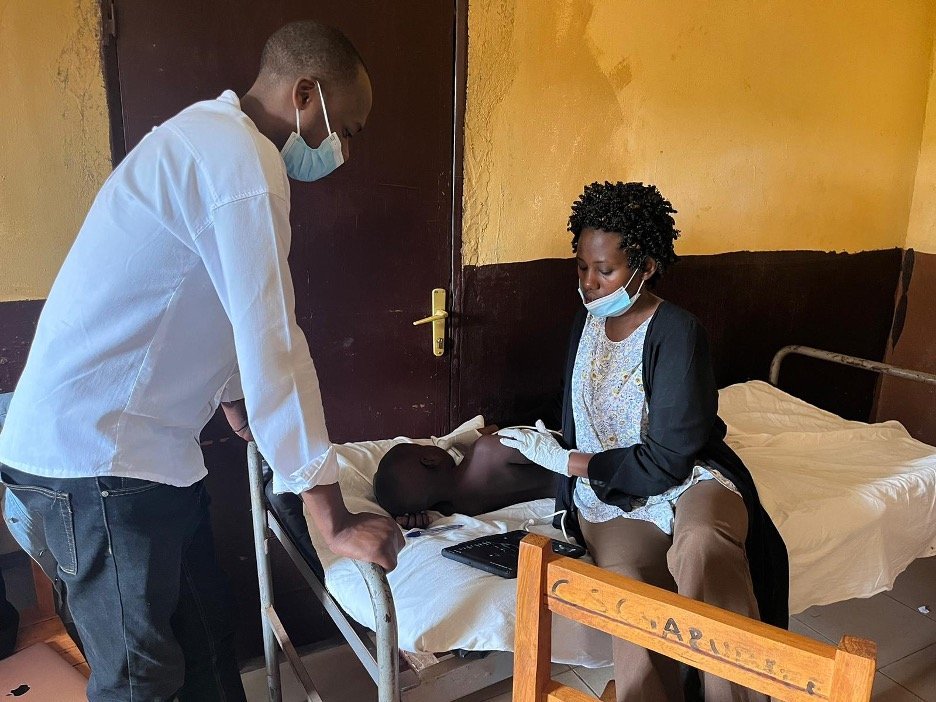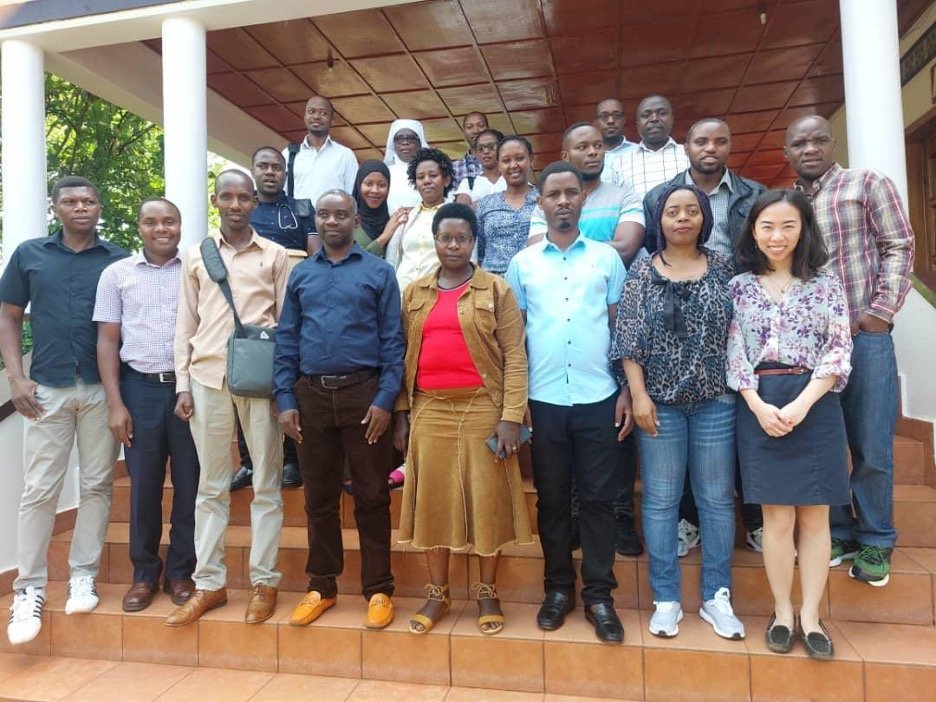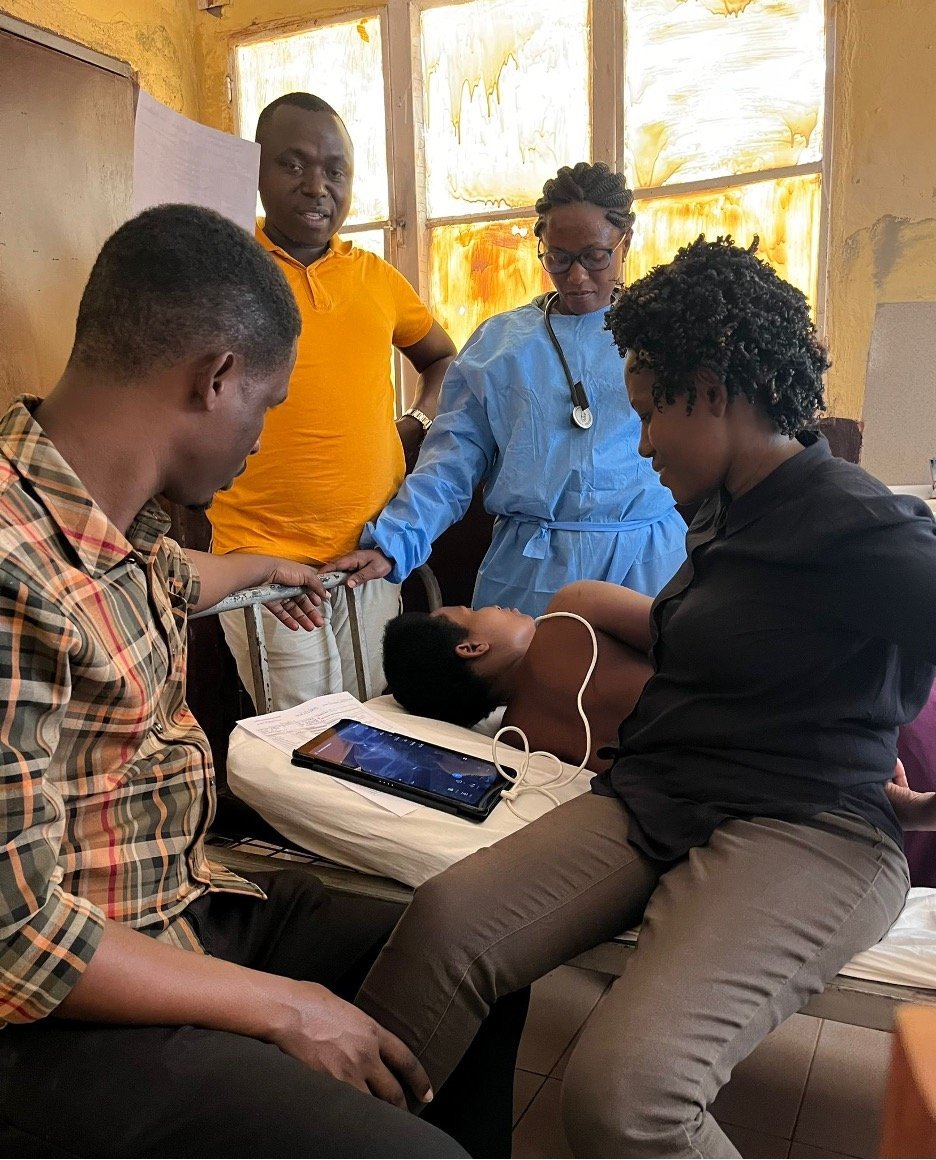Rwanda Makes Strides in Cardiac Care Capacity



In March and May, the Ministry of Health of Rwanda offered two weeks of practical training for 24 nurses and doctors from a dozen PEN-Plus district hospitals. The training, which was offered in partnership with Team Heart, Partners In Health Rwanda, and the NCDI Poverty Network, focused on developing the skills needed to diagnose and treat heart failure in rural district hospitals.
After new trainees completed two weeks of asynchronous online training, they met with PEN-Plus master trainers at the in-person training site in Rwinkwavu for two weeks of practical skills training. PEN-Plus master trainers taught trainees through simulation, bedside echocardiogram practice, and case study review.
Master trainers are nurses and internal medicine doctors selected by their hospital leadership for their exceptional experience and motivation. Master trainers teach others and sustain ongoing training and quality cardiac care in PEN-Plus facilities.
Trainees were able to use their new cardiac skills at two community health screening events in the Rwinkwavu district hospital catchment area. Of the 500+ individuals screened in both March and May, those with findings indicative of a heart condition, diabetes, or hypertension were referred to either a PEN-Plus clinic or a local health center as appropriate.
Dr. Sheila Klassen, technical lead of the NCDI Poverty Network’s Cardiac Expert Group, supervised advanced workshops for master trainers, to enable them to consolidate the teaching skills that have seen them become successful trainers. The group used a mixed approach that included discussing case studies, practicing echocardiography skills, and studying heart-failure concepts.
“The teaching skills that allow the master trainers to teach others how to diagnose and treat heart failure are also transferrable to other noncommunicable diseases,” said Dr. Klassen.
Dr. Klassen also joined with Rwandan cardiology fellows and local master trainers in conducting mentorship visits with previously trained PEN-Plus clinic providers.
“Mentorship is a key component of the PEN-Plus model,” explained Dr. Klassen. “Ongoing training and mentorship enable health care providers to improve the quality of care for chronic NCDs by reinforcing fundamentals and keeping up with changes in healthcare.”
Since the conclusion of these training series, all hospitals in Rwanda equipped with echocardiography machines (38 out of 45) now have at least two clinicians trained to diagnose and treat heart failure: generally one nurse and one physician.
“Rwanda has made astounding progress in scaling up PEN-Plus nationally,” said Dr. Klassen. “Lessons learned in Rwanda—the country furthest along in PEN-Plus expansion—are being applied to facilitate PEN-Plus scale-up in other Network countries. Rwanda shows us how successful PEN-Plus can be in caring for people living with severe, chronic NCDs in rural communities.”
